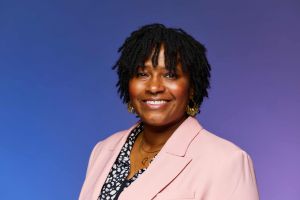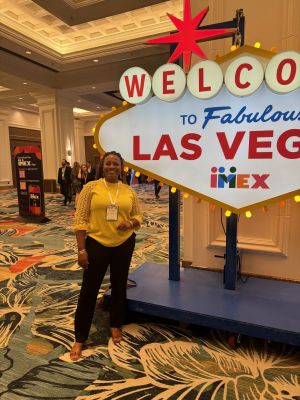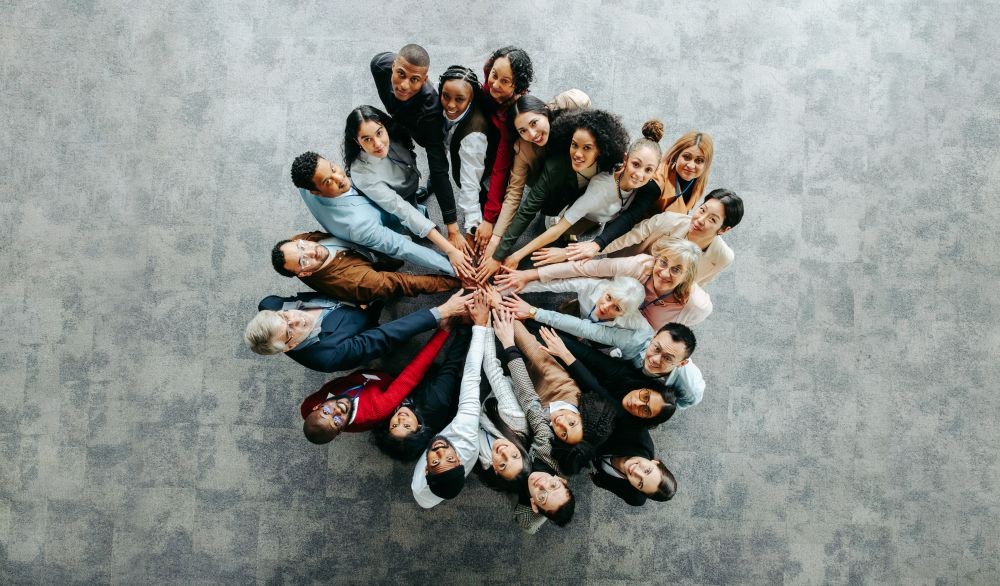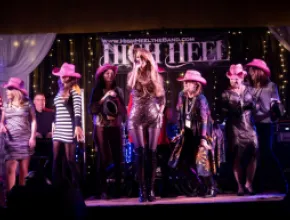
The DEI movement has certainly been under withering fire, with many major corporations, universities and governments abruptly scuttling their efforts in a seismic cultural shift.
Its core concepts will always live on, however, in the diverse quilt that is the meetings industry and, ultimately, with attendees and in the communities in which business events are held.
A longtime meetings industry DEI proponent, Zoe Moore, recently refined her DEI message to focus on the impact business events have on the communities in which they are held, tying it to the concept of environmental sustainability.
Called ‘social sustainability,’ it focuses on the people who are impacted by meetings, for better or worse.
Participate in Zoe Moore's Free Meetings Today Social Sustainability Webinar
“It started with a conversation where I was at an event focused on meeting and event professionals,” Moore recalled. “I was talking to someone about environmental sustainability, which seemingly people are more well-versed on, and they think [sustainability] is the trees, the waterways, the animals, the flora, the fauna. What they’re not thinking about in regard to meetings and events is how their events have an impact not only on the environment, but the people who live in that environment.”
Marginalized communities often suffer the brunt of what the larger society casts off, such as pollution, without the economic benefits that were gained as the result of its production.
“I was making the connection between when people are saying, ‘Let’s no longer use single-use plastic or water bottles at events. Let’s go to containers and have refill stations,’” Moore said. “Beyond that conversation, why are we no longer wanting to use single-use plastics? When they’re removed from the trash and then they’re melted down or they’re destroyed any further, these types of processes that they go through, those refineries or those types of facilities are often placed in marginalized communities.
[Related: Zoe Moore on Why DEI Is Under Fire in the Meetings Industry and Beyond]
“The environmental impact on those marginalized communities is disproportionate,” she continued. “And when we’re at a hotel where the staff is from those communities who are disproportionately impacted, but we don’t understand why there’s less and less staff, or they have health issues, or they’re not getting paid enough, we’re not connecting all those dots.”
Moore believes that the meetings and events industry, which is basically powered by women, especially on the planner side, is fertile ground for understanding the core tenets of social sustainability.
“Women have to ask themselves, ‘Am I getting compensated or paid equally to the men in the industry? Am I in leadership roles at the rate in which men are in?’” she asked. “It’s not just about race. It’s about gender, gender identity, economic status, education status, all the ways that people identify. How does an event help to reduce those inequities across our society?”
[Related: Meetings Industry Leaders Discuss State of DEI During PCMA Panel Discussion]
Where to Begin?
Like with most elements in the lifecycle of a meeting or event, it starts with the RFP.
“That is when you set the tone of the values of your company. What is your expectation?” she asked. “And I tend to lean toward using accessibility because whether it’s done well or not, it’s still something that people can wrap their heads around. Whether that is a physical disability or an invisible disability, we know we have to cater to people with disabilities. So, in your RFP, you’re asking these questions.

“We want our stakeholder ecosystem to think about inclusion and equity in the work that they do,” she continued. “And it begins with that RFP kind of being that centralized document that says, again, ‘Here are the values of my company. Here are my values. And this is what I’m looking for.’ It opens the floodgates for a conversation to say, ‘What ways can we do this? How can we think through this together?’ I think it plants seeds.”
The need to be cognizant of those with accessibility-related needs is especially relevant.
“Over 27% of the population has a disability, and that number is growing every single day because people age, people get in accidents, people have different medical conditions,” Moore said. “There’s going to be a lot of our attendees that have different disabilities, so our events need to accommodate those needs in a way that is not just following or abiding by a law, but that is compassionate and is designed into the overall experience where people don’t feel excluded.”
It’s also important to strive toward supplier and vendor diversity in the destination where the meeting is held.
[Related: Riverside EpiCenter: A Meeting Venue on a Mission]
“We should be reaching out to local businesses to see how they can be involved,” Moore said. “If you are very intentional about hiring businesses that are from that particular location, it circulates the dollars within that community and reinvests it back into that community.
“And I think in the end, as a planner, it’s almost like you don’t need to think of this as a political football on a big level,” Moore summed up. “What are the values of your organization and how do you represent them, right? If you do work for an organization where they value this, then nothing has changed much on the bigger landscape as maybe people believe at the moment.”
Free On-Demand Webinar: The State of DEI in the Meetings Industry and Beyond







